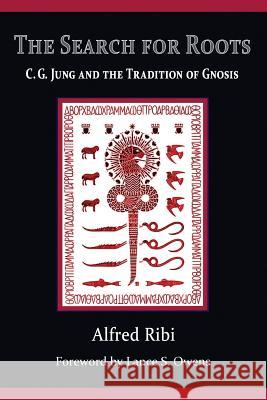The Search for Roots: C. G. Jung and the Tradition of Gnosis » książka
The Search for Roots: C. G. Jung and the Tradition of Gnosis
ISBN-13: 9780615850627 / Angielski / Miękka / 2013 / 336 str.
The publication in 2009 of C. G. Jung's The Red Book: Liber Novus has initiated a broad reassessment of Jung's place in cultural history. Among many revelations, the visionary events recorded in the Red Book reveal the foundation of Jung's complex association with the Western tradition of Gnosis.
In The Search for Roots, Alfred Ribi closely examines Jung's life-long association with Gnostic tradition. Dr. Ribi knows C. G. Jung and his tradition from the ground up. He began his analytical training with Marie-Louise von Franz in 1963, and continued working closely with Dr. von Franz for the next 30 years. For over four decades he has been an analyst, lecturer and examiner of the C. G. Jung Institute in Zurich, where he also served as the Director of Studies.
But even more importantly, early in his studies Dr. Ribi noted Jung's underlying roots in Gnostic tradition, and he carefully followed those roots to their source. Alfred Ribi is unique in the Jungian analytical community for the careful scholarship and intellectual rigor he has brought to the study Gnosticism. In The Search for Roots, Ribi shows how a dialogue between Jungian and Gnostic studies can open new perspectives on the experiential nature of Gnosis, both ancient and modern. Creative engagement with Gnostic tradition broadens the imaginative scope of modern depth psychology and adds an essential context for understanding the voice of the soul emerging in our modern age.
A Foreword by Lance Owens supplements this volume with a discussion of Jung's encounter with Gnostic tradition while composing his Red Book (Liber Novus). Dr. Owens delivers a fascinating and historically well-documented account of how Gnostic mythology entered into Jung's personal mythology in the Red Book. Gnostic mythology thereafter became for Jung a prototypical image of his individuation. Owens offers this conclusion:
"In 1916 Jung had seemingly found the root of his myth and it was the myth of Gnosis. I see no evidence that this ever changed. Over the next forty years, he would proceed to construct an interpretive reading of the Gnostic tradition's occult course across the Christian aeon: in Hermeticism, alchemy, Kabbalah, and Christian mysticism. In this vast hermeneutic enterprise, Jung was building a bridge across time, leading back to the foundation stone of classical Gnosticism. The bridge that led forward toward a new and coming aeon was footed on the stone rejected by the builders two thousand years ago."
Alfred Ribi's examination of Jung's relationship with Gnostic tradition comes at an important time. Initially authored prior to the publication of Jung's Red Book, current release of this English edition offers a bridge between the past and the forthcoming understanding of Jung's Gnostic roots.











